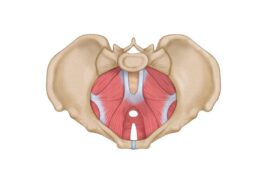
Vitamin D
Also known as “the sunshine vitamin” because our bodies naturally produce it when we expose our skin to the sun. Studies have shown that people supplemented with adequate levels of vitamin D3 during the cold and flu season had significantly lower rates of infection. With this knowledge it’s no wonder during winter when we have less exposure to the sun and therefore lower vitamin D levels that we are more likely to experience coughs/colds/influenza.
Food sources of vitamin D:
Sunlight (not a food), fatty fish (salmon*, mackerel, tuna*), liver, eggs, dairy, mushrooms.
Probiotics
Probiotics, the “good” bugs in our gut have been found to help us maintain a healthy immune response; support our brain for optimal mood, focus, and attention by producing over 90% of our neurotransmitters, serotonin and dopamine; help with detoxification, and even produce their own antimicrobial and anticancer compounds. Studies of the immune benefits of probiotics are vast. Research suggests that a flourishing network of gut bacteria can help your immune cells differentiate between normal, healthy cells and harmful invader organism.
The health of your gut and that of your immune system is intricately interconnected. Probiotics are found in fermented foods. Fermented foods pack a bigger probiotic “punch” than any probiotic supplement you can take. In fact, kimchi was found to kill the H1N1 influenza virus. Even small amounts of fermented foods are potent so even if you only have 1/2 a teaspoon to begin with it is still very beneficial. Fermented foods and probiotics may bolster your immune system by helping it decipher between friend and foe and then target the harmful pathogens (foe).
Food sources of probiotics:
Fermented foods such as kefir, yoghourt, sauerkraut, tempeh, kombucha, miso, natto and kimchi are important dietary sources of probiotics.
Omega 3 Essential Fatty Acids
The best food source of the omega-3 essential fatty acids, eicosapentaenoic acid (EPA) and docosahexanoic acid (DHA) is fatty fish. Vegetarian sources of omega-3 fatty acids, like flaxseeds, contain alpha-linolenic acid (ALA) which must be converted to EPA and DHA via the enzyme delta-6-desaturase. Unfortunately, this conversion is not very efficient in most people. So, unless you’re a strict vegetarian, I prefer wild-caught, sustainable, fatty fish as a primary source of omega-3 essential fatty acids.
Like vitamin D, the immune benefits of omega-3 essential fatty acids (aka fish oil) are too numerous to list. Omega-3 essential fatty acids reduce inflammation, support healthy immune response, optimise brain and cognitive function, support positive mood, benefit attention and focus, and even gives us healthy skin and hair. Who doesn’t want all of that? Omega-3 essential fatty acids are not just a part of my pandemic immune support plan, they are a part of my family’s year-round plan to stay as healthy and happy as possible.
Food sources of omega 3 essential fatty acids:
Fatty fish (salmon*, mackerel, tuna*, anchovies, caviar, chia seeds, hemp seeds, flaxseeds, English walnuts
*It’s VERY important to buy wild caught salmon, NOT farmed. The best tuna is skipjack as opposed to yellowfin as the larger the fish, the higher the amounts of heavy metals that they contain. Limit fish consumption to twice a week.
Visit the Magic Forest Folk website to shop their range of naturopathically formulated herbal teas and products. You can also connect with them on Facebook and Instagram.
References
- https://doi.org/10.1093/ajcn/26.11.1180
- https://rupress.org/jem/article/216/3/517/120367/G-s-coupled-receptor- signaling-and-sleep-regulate
- https://www.frontiersin.org/articles/10.3389/fnins.2018.00687/full
- https://www.ncbi.nlm.nih.gov/pubmed/15189121
- https://pubmed.ncbi.nlm.nih.gov/32512490/
- https://www.ncbi.nlm.nih.gov/pmc/articles/PMC2973827/
- https://www.ncbi.nlm.nih.gov/pubmed/16042412
- https://www.ncbi.nlm.nih.gov/pmc/articles/PMC4182877/
- https://pubmed.ncbi.nlm.nih.gov/28515951/
- https://ods.od.nih.gov/factsheets/Zinc-HealthProfessional/#h8
- https://pubs.acs.org/doi/abs/10.1021/jf5014633
- https://www.ncbi.nlm.nih.gov/pubmed/22350287
- https://jvi.asm.org/content/78/20/11334
- https://www.ncbi.nlm.nih.gov/pubmed/15668926
- https://pubmed.ncbi.nlm.nih.gov/33179911/
- https://www.sciencedirect.com/science/article/abs/pii/S1756464619301203
- https://www.ncbi.nlm.nih.gov/pubmed/31377749
- https://www.ncbi.nlm.nih.gov/pubmed/15605943
- https://doi.org/10.1016/j.chest.2016.11.036
- https://www.medicinenet.com/script/main/art.asp?articlekey=228745
- https://pubmed.ncbi.nlm.nih.gov/16373990/
- https://ods.od.nih.gov/factsheets/VitaminC-HealthProfessional/
- https://www.ncbi.nlm.nih.gov/pubmed/16224142
- https://www.ncbi.nlm.nih.gov/pubmed/24791752
- https://www.ncbi.nlm.nih.gov/pubmed/23089304
- https://www.ncbi.nlm.nih.gov/pubmed/16787218
- https://www.bmj.com/content/356/bmj.i6583
- https://jamanetwork.com/journals/jamanetworkopen/fullarticle/2770157
- https://www.ncbi.nlm.nih.gov/pubmed/8540746
- https://www.ncbi.nlm.nih.gov/pubmed/28853742
- https://www.clinicaltherapeutics.com/article/S0149-2918(17)30235-7/fulltext
- https://www.ncbi.nlm.nih.gov/pubmed/32167153
- https://www.ncbi.nlm.nih.gov/pubmed/10232622
- https://www.ncbi.nlm.nih.gov/pubmed/15189121
- https://www.ncbi.nlm.nih.gov/pubmed/11869601
- https://www.ncbi.nlm.nih.gov/pubmed/9168553
- https://www.ncbi.nlm.nih.gov/pmc/articles/PMC3337124/
- https://www.nrv.gov.au/nutrients/vitamin-a
- https://www.prnewswire.com/news-releases/kimchi-a-well-known-traditional-fermented-korean-food-has-proven-effective-against-influenza-virus-300687023.html










